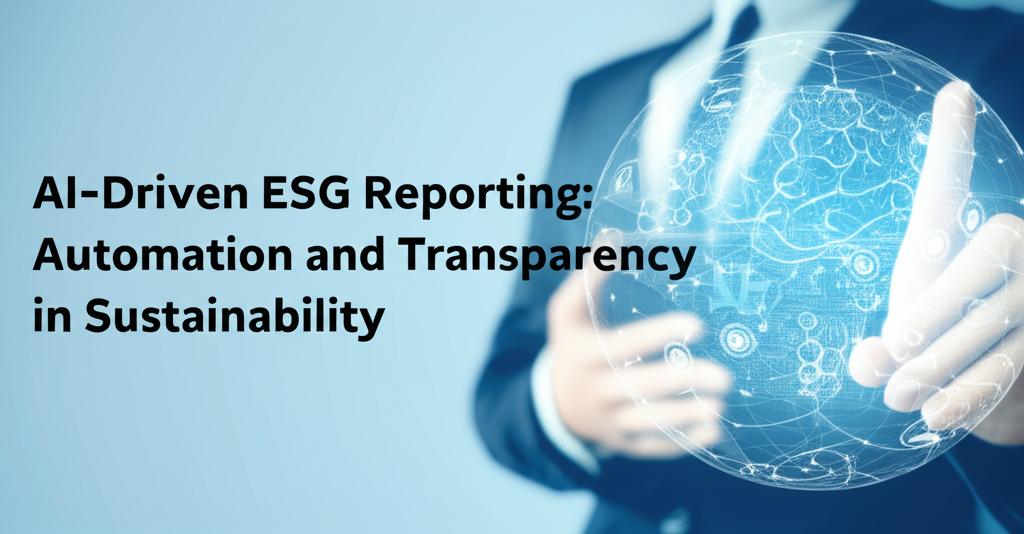The landscape of Environmental, Social, and Governance (ESG) reporting is undergoing a significant transformation, driven by the increasing adoption of Artificial Intelligence (AI) and automation. As businesses face growing pressure to demonstrate their commitment to sustainability and ethical practices, AI offers powerful tools to enhance the accuracy, efficiency, and transparency of their ESG disclosures. This shift is moving ESG reporting from a manual, often fragmented process to a more streamlined, data-driven, and strategic function.
Traditional ESG reporting methods are often plagued by challenges such as fragmented data scattered across various departments and systems, time-consuming manual data collection, and a lack of real-time insights. These issues can lead to inconsistencies, errors, and an inability to meet the evolving expectations of stakeholders, including investors, regulators, and consumers, for timely and reliable information.
AI-powered solutions are addressing these challenges head-on. Automation is a key benefit, with AI algorithms capable of collecting, integrating, and processing vast amounts of ESG data from diverse sources, including internal databases, external reports, social media, and even satellite imagery. This automation not only saves time and resources but also reduces the likelihood of human error, leading to more accurate and consistent data. Natural Language Processing (NLP) and Machine Learning (ML) algorithms can extract relevant ESG metrics from unstructured documents and classify them according to various reporting frameworks like GRI, SASB, and CSRD.
Furthermore, AI enhances transparency in ESG reporting. AI-driven platforms can provide real-time insights through interactive dashboards, allowing stakeholders to explore key performance indicators and understand a company's ESG performance more dynamically. This continuous monitoring capability enables businesses to proactively identify and address sustainability risks and opportunities. Predictive analytics, powered by AI, can forecast future ESG trends and potential risks, such as carbon emissions, supply chain disruptions, or governance issues, allowing for more proactive strategic planning.
The integration of AI also helps organizations stay compliant with constantly evolving ESG regulations. Automated systems can track changes in reporting standards and ensure that disclosures are aligned with current requirements, traceable, and auditable. Some AI tools can even help identify potential greenwashing by scanning reports for inconsistencies or misleading claims.
While the benefits are significant, the implementation of AI in ESG reporting is not without its challenges. Concerns around data privacy, algorithmic bias, and the environmental impact of large-scale AI models themselves need to be addressed. Ensuring data quality and the reliability of AI-generated insights is crucial, and human oversight remains essential to validate results and interpret complex nuances. There's also a recognition that AI should augment, not entirely replace, structured data and digital tagging, which form the backbone of transparent and comparable reporting.
Looking ahead, the synergy between AI and ESG reporting is set to deepen. As sustainability becomes increasingly integral to business strategy and valuation, AI will play an even more critical role in helping organizations meet regulatory demands, enhance investor confidence, and drive meaningful progress on their sustainability goals. The ability to leverage AI for more accurate, automated, and transparent ESG reporting is rapidly becoming a strategic necessity for companies aiming to thrive in an increasingly sustainability-conscious world.

